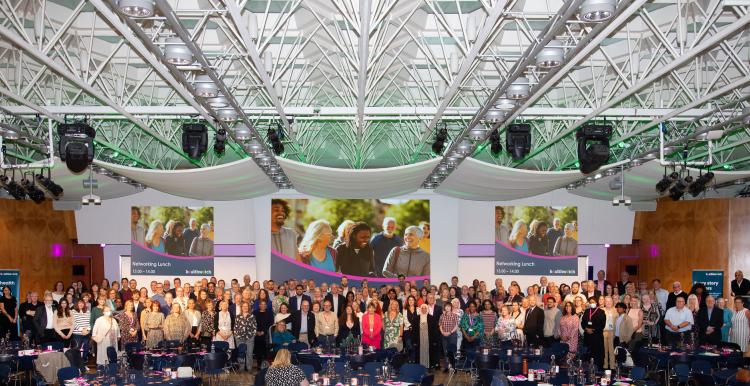Strengthening our future: preparing for change and building on our impact

At last year's conference, I outlined a key strategic objective: to address the sustainability and variation within the Healthwatch network—something many of you highlighted when I first joined Healthwatch England.
With a general election on the horizon, we knew we had to be ready to make our case for change and seize any potential legislative opportunities.
Since then, these discussions have been both necessary and, at times, challenging. You've shared firmly held views rooted in your conviction and experience – including those at odds with the proposal preferred by our National Committee with Healthwatch England as commissioner, referenced in National Committee member Jane Laughton's blog.
We all agree on the scale of our challenges: unsustainable, inequitable funding and negative variation, often driven by factors beyond individual Healthwatch control, such as commissioning.
Doing nothing is not an option.
Without change, some Healthwatch will become unviable, leaving communities without a public champion and eroding the collective influence we've worked hard to build.
However, we didn't foretell the Dash Review, which now examines local Healthwatch and Healthwatch England alongside patient safety organisations.
These tough conversations have prepared us for any changes from the review. We are committed to supporting it, enabling local Healthwatch to have a voice in the process and putting forward our case for change.
Your views have been crucial in shaping our thinking. We've heard about the critical role Healthwatch plays in your communities, the importance of local decision-making and the deep relationships you hold with local people, groups and stakeholders.
The case for local Healthwatch in every area has been heard. There's consensus that we must maintain and strengthen relationships with local authorities while carefully keeping what's working well in certain areas. There is much more work to be done on what this looks like.
There is also the opportunity to modernise our infrastructure and embrace emerging technologies. By doing so, we can free Healthwatch teams from outdated systems, allowing you to focus on your core mission.
Is the proposal fully developed? No, it remains a high-level proposal as part of our broader case for change.
In any case, we are committed to presenting all the models we've explored and their respective advantages and risks. Ultimately, if we succeed in making our case, it will be up to government decision-makers to shape our future, including decisions on our funding. A full implementation and transition plan will be required.
I'm confident in the strength of our case for change.
Healthwatch provides significant value, with even greater untapped potential. Reading your annual reports and hearing about your impact on my visits to your communities has been inspiring.
From your insight into driving national change to individual Healthwatch contributing to select committees and collaborating to influence ICB decision-making, we achieve far more than our size suggests.
For just a penny per person per week, we deliver incredible value—and we know we can achieve even more.
In the wake of the Darzi Review, much attention has focused on fixing the NHS. We’re poised to play our part in helping to shape the 10-Year Plan for the NHS with the involvement of local Healthwatch.
We believe social care needs the same focus—a message we will continue to champion. As the public's health and care champion, Healthwatch must be central to any revitalised system—where lived experiences, particularly from those facing inequalities, drive improvement and accountability.
This is key to ensuring a more equitable system with better outcomes for all.
I look forward to seeing you at the conference, where we will reflect on our achievements, discuss the challenges ahead, and continue working together to build a more sustainable and impactful future for Healthwatch.
